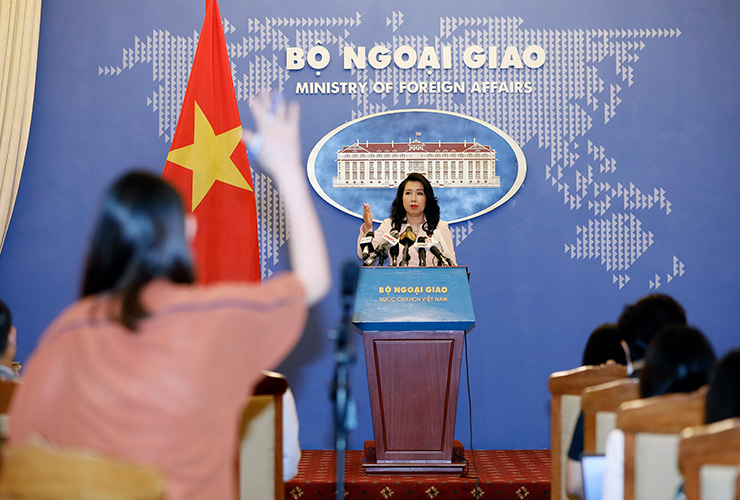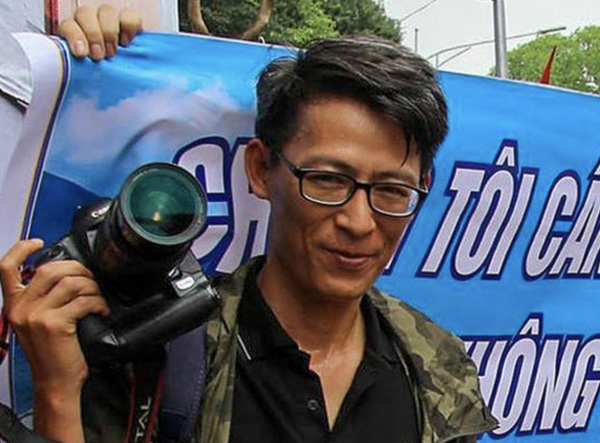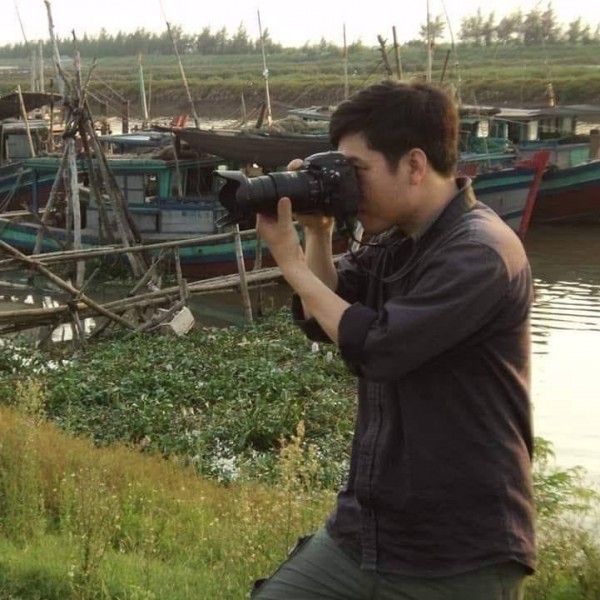The re-election of the leaders of Vietnam’s Communist Party during the party’s official congress last month heralds a continuation of oppressive policies toward press freedom, experts say.
The congress, which ended on February 1, saw the re-election of key party members, including party’s general secretary, Nguyen Phu Trong, who is also Vietnam’s president. Nguyen Phu Trong is known for his conservative ideology and suppressing dissent. Journalists and media freedom organizations fear that the government will increase its attacks on independent media and imprison critical journalists with renewed vigour.
“There is no sign that there will be improvements in the coming years”, Trinh Huu Long, the co-director of Legal Initiatives for Vietnam, an advocacy organization for human rights, democracy and law in Vietnam, told IPI. “The man who is largely responsible for the decline of media freedom in Vietnam over the past five years was re-elected to the top seat. The party is sending negative signals, as they elected a former spy chief of the national police to one of the most four powerful positions, and people have started to spread a rum or that he will be the next prime minister.”
Article 25 of the 2013 Constitution of Vietnam guarantees freedom of expression. However, authorities in the Southeast Asian country continue to harass and imprison dissidents and critics of the government.
“Even though the Vietnamese government always brags about freedom of expression, the Vietnamese government continues to prohibit independent or privately-owned media outlets from operating”, Grace Bui, advocacy officer for The 88 Project, a non-profit organization that supports and encourages freedom of expression in Vietnam, told IPI. “The government uses bogus and vague articles (of the criminal code) such as 331 and 117 to charge journalists, bloggers and Facebook users with long prison terms”.
According to the Criminal Code of Vietnam, Article 331 penalizes “abusing democratic freedoms to infringe upon the interests of the State, lawful rights and interests of organizations and/or citizens” and Article 117punishes, “making, storing, disseminating or propagandizing information, materials, and products that aim to oppose the State of the Socialist Republic of Vietnam”.
Article 117 was used to arrest three journalists on January 2021. Pham Chi Dung was sentenced to 15 years in prison and three years of probation while Nguyen Tuong Thuy and Le Huu Minh Tuan were each sentenced to 11 years and three years of probation, Bui said.
Similarly, on February 10 journalists Phan Bui Bao Thy and Le Anh Dung were arrested after publishing articles on Facebook that allegedly defamed officials. The journalists will be held for at least two months under investigation on allegations of “abusing democratic freedom” under Article 331 of the Criminal Code, according to Vu Quoc Ngu, Director of Defend the Defenders, an organization working to systematically report and document serious human rights violations in Vietnam.
Multiple strategies
Other repressive regulations include the Cybersecurity Law, promulgated in January 2019, and the recent “fake news” regulation that came into effect on April 2020 amidst the Covid-19 outbreak. The decree establishes a penalty of 10 to 20 million VND (€356 to €713), which equals three to six months’ average salary in Vietnam.
However, legislation that leads to fines and arrests is just one of the various tactics implemented by the government to stifle media freedom.
“First of all, the government claims to have the sole authority to decide what a media outlet is and who is qualified to be a journalist”, Trinh Huu Long said. “Second, they outlaw non-state media and discredit international media that is unfriendly to their regime. Third, they punish those who challenge the regime and thus spread fear. As a result, self-censorship is widely practiced and accepted. Fourth, they station informants and spies in media outlets, meaning more fear and self-censorship. Fifth, they directly instruct media outlets what to do and what not to do on a regular basis. Lastly, they keep a tight control over international journalists in Vietnam.”
At the moment there are around 15 journalists and a dozen of bloggers behind bars. But even those numbers do not reflect the severity of the situation.
“Probably the most important indicator is how much journalists practice self-censorship and what stories are missing in the media,” Trinh Huu Long said. “The country is mainly ruled by fear, not prisons.”
13th Party Congress of Vietnam
With the conclusion of the 13th Party Congress, watchdog groups foresee continued or worsened suppression on press freedom.
“I think it will not change but it will get worse”, Bui said. “Vietnam is a one-party country and an authoritarian state that does not tolerate challenges to its power.”
Already in the months before the major Party Congress, the crackdown on independent media and journalists had worsened.
One of the most prominent cases was that of author and journalist Pham Doan Trang who was sentenced to 20 years in prison for disseminating information against the State of Vietnam. Similarly, Dinh Thi Thu Thuy was arrested and sentenced to seven years in prison for sharing anti-government propaganda on Facebook.
Organizations like Vietnam’s Defend the Defenders have expressed concern over the future of independent media in the country saying. “With many conservative senior figures of the Communist Party of Vietnam being re-elected to the country’s leadership for the next term, media freedom could become more suppressed, at least in the next five years”, Vu Quoc Ngu told IPI.
Bui agrees with the prediction saying, “as long as Vietnam is still a one-party country, there is no hope for freedom of the press in Vietnam”.
Mixed outlook for online space
The government is applying stricter censorship online, requesting foreign tech firms such as Facebook and Google to remove unwanted articles and videos criticizing the regime, using public trolls to attack activists on social media, and using hackers to attack activists’ accounts, Vu Quoc Ngu said.
Despite the grim environment for independent media, many media groups continue to work to ensure the free flow of information in the country.
“Organizations continue to use safe methods to disseminate their posts on different online platforms with possible key members staying in foreign countries to maintain their websites and accounts”, Vu Quoc Ngu explained. “Also, writers use nicknames instead of real names in their posts and issue joint statements to raise their voices against the regime’s violations”.
As the technology capabilities of Vietnam’s government are still not strong enough to block certain social media platforms, they play a pivotal role in disseminating information, Trinh Huu Long said.
“Without those technologies, I don’t know how we can do it”, Trinh Huu Long said. “Of course, there are always people who are brave enough to keep bringing the truth to the public despite the extremely high risk of being persecuted, which is good for the cause, but it’s hardly effective”.
At the same time, the international community should continue to support the independent media in Vietnam by taking action and speaking out.
“We need the international community to help cultivate a new generation of independent media and journalists by providing educational opportunities and financial support”, Trinh Huu Long said. “There are already ongoing efforts, and some Vietnamese groups inside and outside of Vietnam know how to make them effective”.
External organizations can also back media freedom efforts by condemning Vietnam’s violations of media freedom and requesting the regime to stop online persecution and remove the controversial Articles 117 and Article 331 from the Criminal Code, Vu Quoc Ngu said.
Offering training on cybersecurity and the development of technologies to help citizens in Vietnam access independent media without having to use VPNs will be crucial in the next five years.
“The government will be more capable of controlling the internet, and they will tighten the iron curtain”, Trinh Huu Long said. “However, there will also be more people willing to take risks to become independent journalists and independent media outlets in exile will continue to play an important role”.



